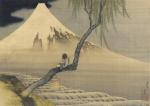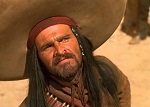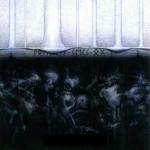Page 1 of 1
So, the TtH Cipher... ...What is it?
#1

Posted 14 March 2011 - 09:25 PM
Now that we've reached the end of the series, I'm curious to hear the thoughts of people who've done multiple TtH rereads (haven't made it there yet, still on book 6 of my second reread.) Any ideas? I originally thought it would involve the scene with Nimander/Gothos/the Azath builder, but guess I was wrong.
And as a preamble of sorts, I don't really buy the idea that something as vague as "the cipher was that Rake was in cahoots with Shadowthrone and Cots and this was the first step in their master plan." That's foreshadowing to me, not a cipher. The very word cipher to me suggests that it's something fairly specific.
And as a preamble of sorts, I don't really buy the idea that something as vague as "the cipher was that Rake was in cahoots with Shadowthrone and Cots and this was the first step in their master plan." That's foreshadowing to me, not a cipher. The very word cipher to me suggests that it's something fairly specific.
#2

Posted 14 March 2011 - 09:52 PM
I thought the whole sacrifice - ressurection - convergence - death thing. In various permutations that's what you get through the whole series.
#3

Posted 14 March 2011 - 10:10 PM
 Pig Iron, on 14 March 2011 - 09:52 PM, said:
Pig Iron, on 14 March 2011 - 09:52 PM, said:
I thought the whole sacrifice - ressurection - convergence - death thing. In various permutations that's what you get through the whole series.
To me that again constitutes foreshadowing. Deliberate use of the word cipher would imply something other than that.
#4

Posted 14 March 2011 - 10:17 PM
The way I understood him, the cipher of TtH is a structure to use to see and make sense of the series. Synonyms of cipher are resolve, solve, unravel. Just MMV.
#5

Posted 06 April 2011 - 11:39 AM
At the recnt tCG signing in Milton Keynes, I asked SE about the cipher in TtH, and what that might. He was... vague in his response, perhaps as if he couldn't explain it in words, at least without being *too* specific. But he mentioned thing like tone and themes, rather than specific events. Which probably doesn't throw much light on things, but there you go.
#6

Posted 06 April 2011 - 01:24 PM
 Leanoric, on 06 April 2011 - 11:39 AM, said:
Leanoric, on 06 April 2011 - 11:39 AM, said:
At the recnt tCG signing in Milton Keynes, I asked SE about the cipher in TtH, and what that might. He was... vague in his response, perhaps as if he couldn't explain it in words, at least without being *too* specific. But he mentioned thing like tone and themes, rather than specific events. Which probably doesn't throw much light on things, but there you go.
If it simply revolves around tone and theme, I guess it's probably the book where the series themes of compassion, redemption and the cost/beauty of civilisation shine through the most clearly?
It could be (probably unlikely, but possibly) that it's just the book Erikson poured the most of himself into emotionally (correct me if I'm wrong, but I think he wrote it at a pretty dark period of his life?) and therefore it means something to him that the reader might not really be able to grasp in full even if explained. I've written a fair bit, and know how that feels, but there could be something I'm missing... it would seem a reasonable conclusion from the fact that nobody seems to be able to work out what he means, though.
Actually, maybe he means the scene the entire series to that point had us all anticipating with bated breath... the showdown between Iskaral Pust and Kruppe.
This post has been edited by POOPOO MCBUMFACE: 06 April 2011 - 01:25 PM
#7

Posted 06 April 2011 - 08:15 PM
It also probably has to do with the different new gods we see coming up. Redeemer, Dying God, TCG (new in the sense of having a new temple in Darujhistan at least, and a surge in worship worldwide as he makes his final gambit), and the new god inside Dragnipur. What do worshipers owe their gods, and what do gods offer their worshipers? And of course it gives us some clues as to the fact that there are many gods Elder, mid, and new, who are part of some kind of conspiracy. In that sense, TTH gives us the sides of the war over the Crippled God.
They came with white hands and left with red hands.
#8

Posted 01 August 2023 - 09:38 PM
Someone posted a pretty neat analysis of TtH as "cipher" for the series -- it's spoilery up through the entirety of MBotF, and worth reading if you've made it through imo:
https://www.reddit.c..._as_the_cipher/
https://www.reddit.c..._as_the_cipher/
They came with white hands and left with red hands.
#9

Posted 02 August 2023 - 11:47 AM
Speaking of necros, resurrecting yourself 12 years on is a pretty neat trick.
"Fortune favors the bold, though statistics favor the cautious." - Indomitable Courteous (Icy) Fist, The Palace Job - Patrick Weekes
"Well well well ... if it ain't The Invisible C**t." - Billy Butcher, The Boys
"I have strong views about not tempting providence and, as a wise man once said, the difference between luck and a wheelbarrow is, luck doesn’t work if you push it." - Colonel Orhan, Sixteen Ways to Defend a Walled City - KJ Parker
"Well well well ... if it ain't The Invisible C**t." - Billy Butcher, The Boys
"I have strong views about not tempting providence and, as a wise man once said, the difference between luck and a wheelbarrow is, luck doesn’t work if you push it." - Colonel Orhan, Sixteen Ways to Defend a Walled City - KJ Parker
#10

Posted 02 August 2023 - 12:44 PM
Very interesting take, though. The whole concept of the Malazan Book of the Fallen does center around deeper themes about coping with adversity, grief and loss, personal growth and resilience. Although the series title can be interpreted in different ways, the dual explanation of remembering those fallen in conflict and the God that has fallen (well, been pulled down) is obviously deliberate. Whereas the first explanation seems obvious at first glance, the second one only reveals itself as the story progresses but ends up taking centre stage towards the end. Seeing the whole series as a book about (and potentially from the 'perspective' or experience of) Kaminsod and his journey is therefore definitely valid and has been posited a lot.
And it really does put the whole series in perspective when viewing it through that lens, where the story almost becomes an allegory for a person going through a prolonged period of suffering but emerging stronger. It has all the key elements if you would consider Kaminsod / the Crippled God as the real protagonist:
- From a place of great comfort and power, suddenly and unexpectedly being thrown ('pulled') into a strange, alien and highly unpleasant situation that leaves you trapped and severely hurt (physically and/or mentally), without any power or control and completely disoriented.
- Feelings of deep confusion, hurt, self pity and anxiety while trying to start to make sense of your new reality.
- Anger and frustration and blind rage, trying to regain some form of control over your own destiny by using every bit of power and cunning that you have retained to lash out at everything in this new world indiscriminately, trying to hurt this alien environment that has hurt you as much as you can.
- Doubling down and raging when opposition is encountered, self-righteous in your personal view that a great injustice has been done to you indiscriminate of any particular origin (multiple chainings/disempowerments, new and confusing threats from all directions).
- Slowly coming to the realisation that not everything in this strange new environment is black and white and out to hurt you. Although bad things have happened and bad things have been done to you and are still being done to you as the story progresses, there are also glimpses of decency and support lifelines.
- At the very lowest point, where all the rage and fight has been expended and where all your power has been stripped away (lost battles, failed 'alliances', foiled plots), there is nothing left but to hand yourself over to the mercy of others.
- Finding that where once only hatred and despair was perceived, there are signs of hope and genuine help, not aiming for personal enrichment or gain, but purely out of a genuine desire to stop the hurt and suffering inflicted.
- Some hard hitting realisations that you have been lashing out and hurting the very people that have been trying to help you all along.
- Acceptance of your new reality, a final recognition and gratitude for the help offered, and eventually a resolution.
At the core, this is an age old story that has been told many times in many different settings, but MBotF flips this entire trope on its head by having the reader experience this journey of loss and redemption not through a main character (Kaminsod / the Crippled God / the Fallen God / the victim), but through all those other lives the character has touched upon at one point or another, both through his angry lashing out and his signs of hurt. The tragedies that the Crippled God inflicts on the various Malazan societies can be seen as metaphors for a deeply hurt individual lashing out to everyone in their surroundings both out of pain and hurt but also to pull up a wall between themselves and the outside world to not get hurt again. You could probably tell a very similar story set somewhere in the UK or Canada with a protagonist who had to deal with a sudden life changing loss or disability. But this is a much more intriguing way of doing it.
Seen like that MBotF is, while possibly not always hitting the nail exactly on the head or getting side tracked by other story events a bit, a breathtakingly impressive feat of philosophical writing. It is incredibly ambitious and beyond epic, plus it is a very interesting perspective to explore these well trodden themes of loss, resilience, redemption and compassion in a completely new setting.
And within this interpretation of the story, TtH would indeed be the cipher for the entire series. Because up to that point we have moslty experienced the Crippled God as an alien entity of pure evil that is indiscriminately lashing out seemingly with the intent to destroy the Malazan world. But in TtH we experience the first signs of what might lie beneath this behaviour, we learn the importance of narration and how our information sources (or lack/skewedness thereof) can colour our perception of events, and we get insights through different examples (young gods, dying gods, the nature of belief, trust and compassion) of the overarcing journey that Kaminsod has been on thus far. It is also the book where we transition from the anger, hurt and lashing out by the Crippled God to completely having to relinquish control and start trusting in others and accepting your fate and come to grips with the new reality.
Yeah, cool topic.
And it really does put the whole series in perspective when viewing it through that lens, where the story almost becomes an allegory for a person going through a prolonged period of suffering but emerging stronger. It has all the key elements if you would consider Kaminsod / the Crippled God as the real protagonist:
- From a place of great comfort and power, suddenly and unexpectedly being thrown ('pulled') into a strange, alien and highly unpleasant situation that leaves you trapped and severely hurt (physically and/or mentally), without any power or control and completely disoriented.
- Feelings of deep confusion, hurt, self pity and anxiety while trying to start to make sense of your new reality.
- Anger and frustration and blind rage, trying to regain some form of control over your own destiny by using every bit of power and cunning that you have retained to lash out at everything in this new world indiscriminately, trying to hurt this alien environment that has hurt you as much as you can.
- Doubling down and raging when opposition is encountered, self-righteous in your personal view that a great injustice has been done to you indiscriminate of any particular origin (multiple chainings/disempowerments, new and confusing threats from all directions).
- Slowly coming to the realisation that not everything in this strange new environment is black and white and out to hurt you. Although bad things have happened and bad things have been done to you and are still being done to you as the story progresses, there are also glimpses of decency and support lifelines.
- At the very lowest point, where all the rage and fight has been expended and where all your power has been stripped away (lost battles, failed 'alliances', foiled plots), there is nothing left but to hand yourself over to the mercy of others.
- Finding that where once only hatred and despair was perceived, there are signs of hope and genuine help, not aiming for personal enrichment or gain, but purely out of a genuine desire to stop the hurt and suffering inflicted.
- Some hard hitting realisations that you have been lashing out and hurting the very people that have been trying to help you all along.
- Acceptance of your new reality, a final recognition and gratitude for the help offered, and eventually a resolution.
At the core, this is an age old story that has been told many times in many different settings, but MBotF flips this entire trope on its head by having the reader experience this journey of loss and redemption not through a main character (Kaminsod / the Crippled God / the Fallen God / the victim), but through all those other lives the character has touched upon at one point or another, both through his angry lashing out and his signs of hurt. The tragedies that the Crippled God inflicts on the various Malazan societies can be seen as metaphors for a deeply hurt individual lashing out to everyone in their surroundings both out of pain and hurt but also to pull up a wall between themselves and the outside world to not get hurt again. You could probably tell a very similar story set somewhere in the UK or Canada with a protagonist who had to deal with a sudden life changing loss or disability. But this is a much more intriguing way of doing it.
Seen like that MBotF is, while possibly not always hitting the nail exactly on the head or getting side tracked by other story events a bit, a breathtakingly impressive feat of philosophical writing. It is incredibly ambitious and beyond epic, plus it is a very interesting perspective to explore these well trodden themes of loss, resilience, redemption and compassion in a completely new setting.
And within this interpretation of the story, TtH would indeed be the cipher for the entire series. Because up to that point we have moslty experienced the Crippled God as an alien entity of pure evil that is indiscriminately lashing out seemingly with the intent to destroy the Malazan world. But in TtH we experience the first signs of what might lie beneath this behaviour, we learn the importance of narration and how our information sources (or lack/skewedness thereof) can colour our perception of events, and we get insights through different examples (young gods, dying gods, the nature of belief, trust and compassion) of the overarcing journey that Kaminsod has been on thus far. It is also the book where we transition from the anger, hurt and lashing out by the Crippled God to completely having to relinquish control and start trusting in others and accepting your fate and come to grips with the new reality.
Yeah, cool topic.
This post has been edited by Gorefest: 02 August 2023 - 12:53 PM
Yesterday, upon the stair, I saw a man who wasn't there. He wasn't there again today. Oh, how I wish he'd go away.
Share this topic:
Page 1 of 1

 Help
Help















